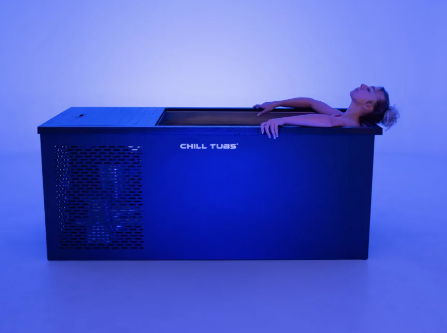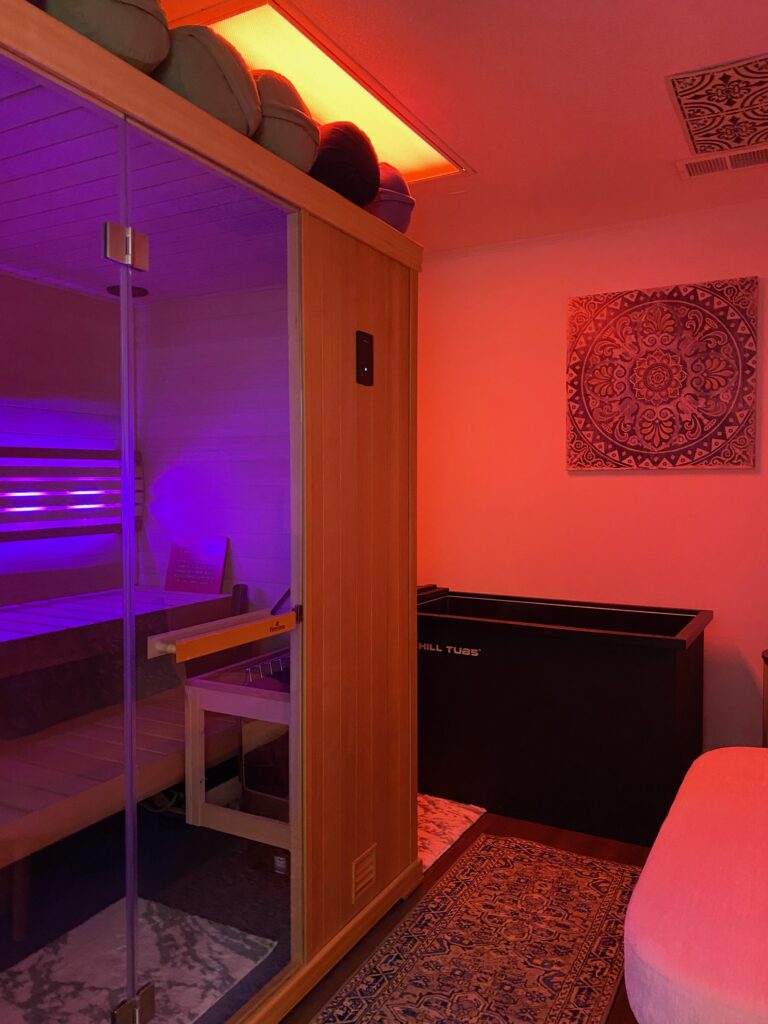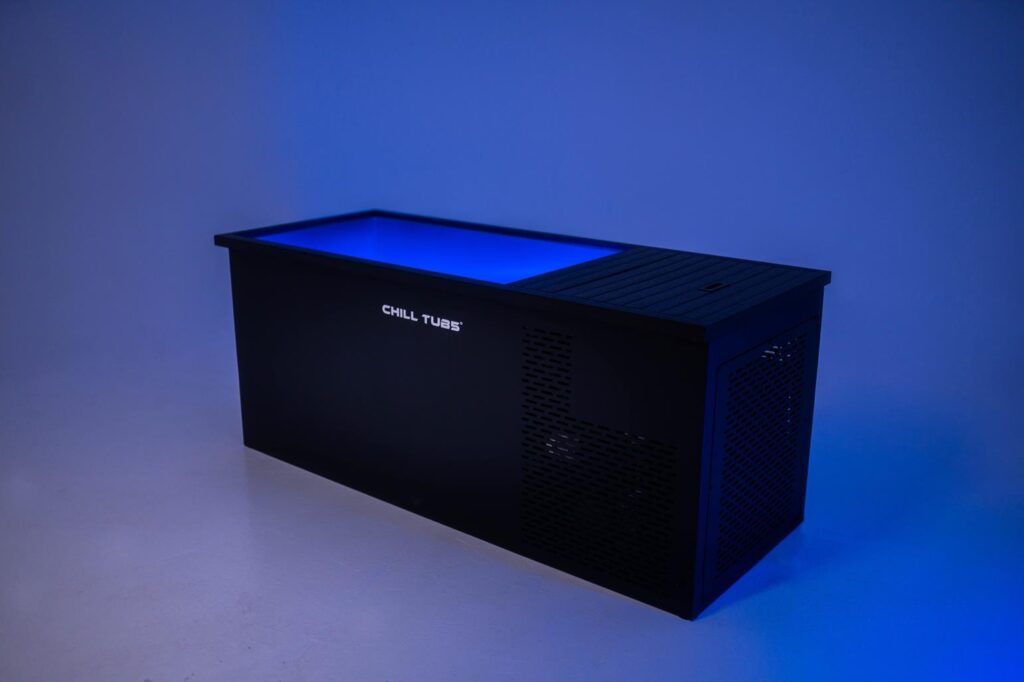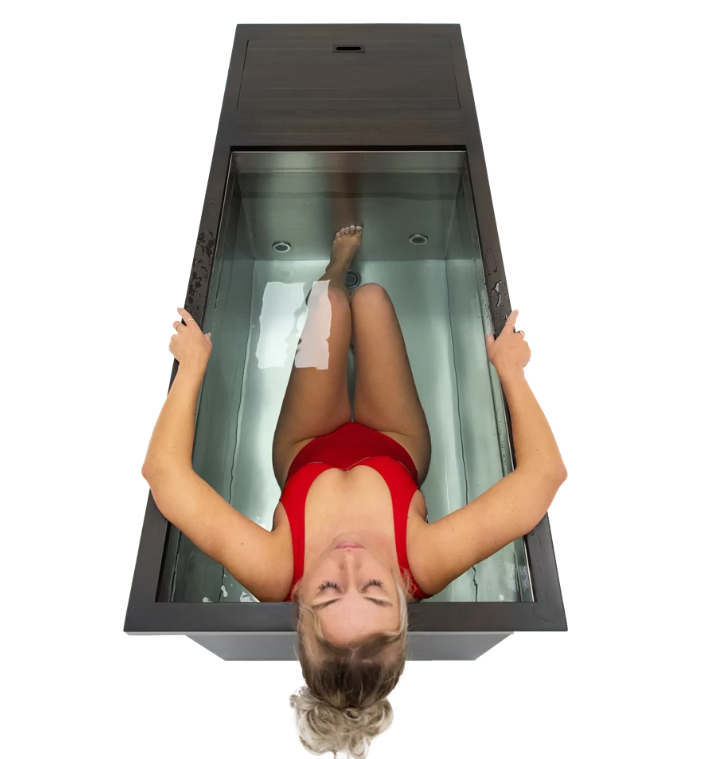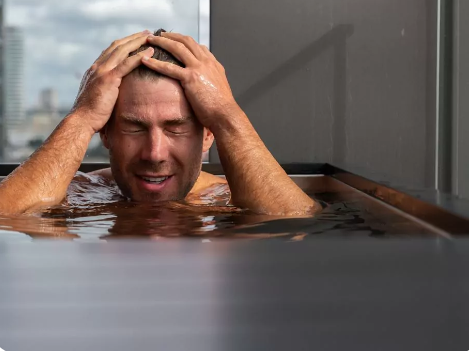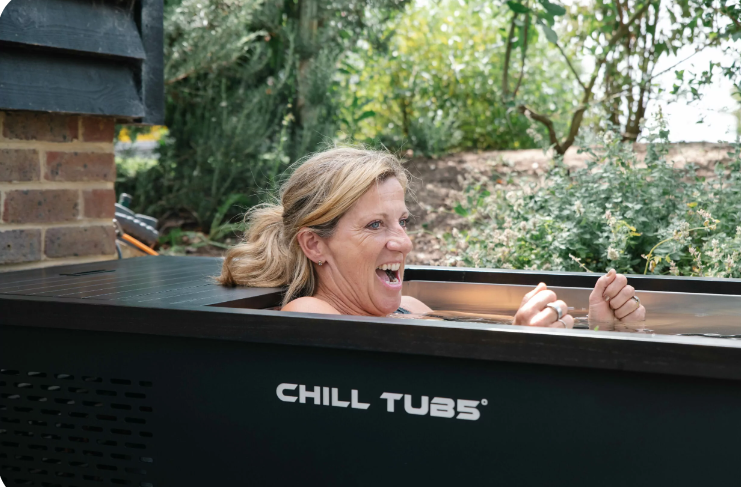Embrace the cold
Like the sauna, cold plunges also provide a significant amount of health benefits. Cold water therapy is a recovery technique used by athletes and individuals looking to reduce muscle soreness, improve recovery time, decrease inflammation and improve circulation. Mentally, cold plunges can help clear your mind and provide a sense of calmness while reducing stress levels.
Cold plunges improve mood and increase mental alertness while reducing anxiety, panic attacks and depression. They may also improve sleep quality and assist in weight loss. PLEASE NOTE: Anyone with health problems or under medical supervision, such as people with heart conditions, diabetes, high or low blood pressure, and pregnant women must not use the sauna or cold plunge without first consulting their doctor.
FAQ
What are the benefits of cold plunge use?
Some of the potential physical benefits of cold plunge use include reducing muscle soreness, improving recovery time, decreasing inflammation and improving circulation. In addition to physical benefits, the cold plunge may have mental health benefits. Cold plunge use may help improve your mood, increase mental alertness, and improve anxiety and depression.
What is the temperature of the cold plunge?
Our cold plunge is kept between 55 – 57°F.
Who should NOT use a cold plunge?
Children and pregnant women should NOT use a cold plunge. Anyone with medical conditions or under a doctor’s care, such as people with heart conditions, diabetes, high or low blood pressure, or other health problems must NOT use the cold plunge without a doctor’s consent and written approval.
It’s important to note that cold plunges are not suitable for everyone and can be uncomfortable or even dangerous for some individuals. It’s always best to consult with a healthcare professional before starting any new recovery routine.
How long should you stay in the cold plunge?
Tolerance to cold water varies from person to person. We recommend being mindful of gradually building up the duration of use with the cold plunge. Start with safe, short dips of 30 seconds to learn what your limits are. If you begin to feel uncomfortable or you start to shiver, listen to your body, get out and slowly warm up by drying off. Allow a few minutes to rest and reacclimate before entering a hot sauna.
What does research say?
What does research say?
Hot Sauna to Cold Plunge: An Emerging Healthy Trend If you haven’t tried a cold plunge yet, it’s time to try it! There’s a growing trend of enjoying the deep heat of the sauna followed by a cold water plunge. In addition to extending the season for using your pool (or other cold water source) there are several health benefits associated with the combination of hot sauna followed by submerging in cold water.
When the body’s core temperature rises in the sauna, and then plunges into
cold water, the body receives a “cold shock”. As a result, the sympathetic
nervous system is activated and hormones such as adrenaline,
norepinephrine and endorphins are released. When the hormones are
released at the same time as the respiratory and heart rate increasing, it gives
a feeling of euphoria and pleasure. Experienced cold plungers testify that they feel happier, more fit, have less aches and their ability to cope with stress improves. Ice baths have been a common practice amongst many athletes following their training sessions. Athletes plunge into an ice bath post-exercise to enhance their recovery and reduce muscle pain and soreness. The cold water plunge preceded by a hot sauna enhances the experience and the benefits derived.
With the scientific studies on hot to cold bathing, there is evidence to show
that regular cold plunges seem to relieve pain, protect against oxidative
stress, increase antioxidants in the body and relieve anxiety and depressive
symptoms. Studies also report positive effects on blood pressure, the immune
system, and sleep. So why not seize the opportunity to take a dip in the cold
water next time you are having a sauna. You will feel rejuvenated!
Important note:
Anyone with any health risk should consult a doctor before doing cold water
plunges.
Source: https://www.finnleo.com/blog/cold-water-plunge
